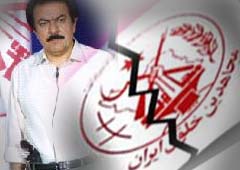The fugitive leader of Mujahedin Khalq Organization (MKO, MEK, PMOI) has started writing his memoirs to allegedly inform the Iranian youth. In the ninth part of his serial messages, he has used his last card to achieve the support of Western countries as well as other so-called opposition leaders. 
Particularly Massoud Rajavi addresses Reza Pahlavi (the son of the Shah of Iran) to join his alleged resistance movement and invites him to attend his imaginary presidential election in an Iran where there would be a democratic republic state separated from religion!
Why? After decades of accusing Pahlavi of treasons and crimes and struggling against them, Rajavi makes a U-turn and begs the remnant of Pahlavi Dynasty for support. Although Reza Pahlavi does not enjoy a significant role among Iranian opposition leaders, Massoud Rajavi seeks his impact in the US government. That’s why he directly asks Reza Pahlavi to defend PMOI and to try for its removal from terror list of Department of State.
Former members of MKO remember the Mujahed Journal (official journal of MKO) in which Rajavi had attacked US then-president Clinton who had visited Reza Pahlavi in a restaurant. Now what a change that Rajavi asks Reza “to serve his compatriots”
The illusions of Masud Rajavi have led him to a phase where he views himself as an important figure among Iranian politic men. But it is clear that Iranian’s political memory never recalls Massoud Rajavi as a notable political person but as a traitor and criminal.
Thus, the only use of such a message to the son of former Shah of Iran is paving the way for further approaches towards US government and getting removed from the list of FTOs.
Resorting to such a policy, Massoud Rajavi ruined the revolutionary background he had always pretended to have among his supporters.
However, he had already changed his slogans and claims numerous times. This time he clearly and openly contradicts all his previous slogans just as a futile effort to gain the support of the West. His message proved that all his decision and policies are made in accordance with “temporary benefits” not with his beliefs.
By Mazda Parsi

